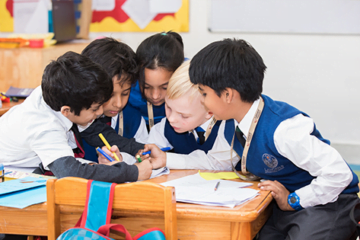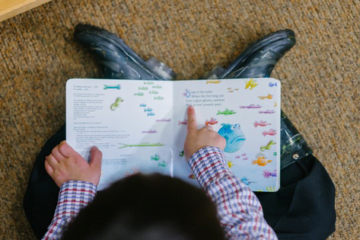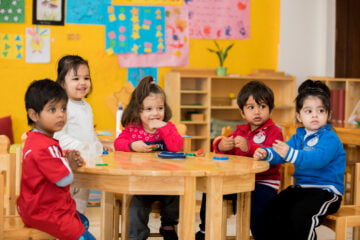As parents, we often worry about our child’s academic performance and whether or not they’re meeting their peers’ standards. Memory loss is a common concern among young people, but some parents may overlook the fact that memory development differs among children at different stages of life. So why do kids lose things? To put it simply, memory is an acquired skill; therefore, the majority of us naturally forget things as we get older because we do not work on strengthening our memories as well. It would be good to encourage our kids to think positively and explain how every person has strengths and weaknesses.
It can be really easy for children to lose little things like their lunch or a jacket, but it can be hard for them to remember certain other things as well. For example, have you asked your child lately whether they brushed their teeth before bed or not? If the answer is ‘no’, do you find that they genuinely forgot, or was it because they were just preoccupied with something else altogether?
You see, many of the skills you will want them to learn, such as memory skills, are required for them to stay organized, remember what English vocabulary words correlate to which Spanish counterparts – and keep those associations in mind without writing everything down. This is one way for them to stay prepared and make sure they get all their homework done!
Why do memory skills matter?
Your child’s memory skills are vital for success in the modern world. Children need to be able to retain information to be able to do well in school or later on at their job and remember things like learning new things, for example, playing an instrument or getting into new sports, and more skills will need a fairly decent memory.
Ways to Improve Your Child’s Memory
To retain important concepts and pointers discussed in the classroom, students need to be able to work with their memory. Without memory skills, they can quickly become overwhelmed with the amount of information they have to go over.
Teach How to Visualize Information
One way to help your children become better at reading comprehension is by teaching them how to use charts and graphs. These tools are helpful in that they enable students to organize the information they have read into bite-sized, understandable pieces. It can also improve their ability at remembering what they have learned.
Learn by Practicing
Try to involve the kids in skill development training programs. Enroll them in a sports day too. Skills work for children, such as memorizing verses or facts from books they prefer and letting their minds generate associations so that the information sticks and moves easily to the working memory during the time they need it.
Teach How to be Comfortable in Unfamiliar Environments
Depending on their sensitivities, a child may require special care to help them feel comfortable in unfamiliar environments. To make your child more confident around new people and things, you could find them a class or training course that allows them to brush up on skills that may never have received much attention before, for instance, math or music.
Since having fun is also important for stimulating cognitive development, it is important to encourage children away from high-tech gadgets and computer games so they can interact with others in person and not simply over the internet, which has its advantages but will severely limit (if not cripple) one’s social skills overall.
To help social butterflies light up more and be less anxious, consider family trips. These excursions are an ideal way to make the most of their downtime and shoot for skills development to prepare them for life in general. This might also restore some of their confidence to start sharing more of their personality with people by providing them with interaction practice instead of being so reserved.
Use of Arts and Crafts Exercise
The best way to help your child ‘sharpen their memory’ is by making sure, when they’re doing arts and crafts, sports, music, or any other activity that requires brain power for them to recall something in the future, that you are around to encourage them. In turn, this will let you bond with them and spend some quality time together, which may breed optimism as well as a feeling of self-esteem as they embark on new challenges. Remember, it doesn’t matter what it’s about; just being there for your children can make all the difference in the world, whether it’s a hobby or studying for an exam at school, because what matters more than anything else is having a healthy respect for yourself.
Sharpening Memory Skills
Your child can develop focus skills by doing activities of daily living (ADL) that increase hand-eye coordination. One of the most effective ways is to take up a sport where your child will be required to use their eyes and hands at the same time. Some good examples include archery and bull’s eye, both of which require heightened levels of coordination since they involve holding and releasing objects while practicing self-discipline in terms of timing, learning when to shoot or not shoot based on visual cues, concentration, setting, and attaining goals, etc.
This helps build your child’s focus since their decision-making process involves using their memory as well as imagination to replicate a previously seen mental image onto an actual piece of work, such as a bullseye target or an arrow accurately shot towards its intended target.
Extracurricular activities are important, as you will see your child dealing with many things at a time. This needs out-of-the-box skills, as your kid will have to imagine and design something possible for them after applying their well-polished memory skills.
As a parent, it’s important to know your child’s learning style to guide them toward the different methods of learning that will best suit their needs. While parents may be inclined to resort to flashcards and mnemonic devices like those used for memorizing multiplication tables, this may not be effective because it is based on one’s ability to recognize objects and associate them with one another. In contrast, exercising other skills like spatial reasoning can empower children to express themselves in different ways with words or art when they are unable to.
If you want help letting your child know that they are of great value and importance, give them opportunities to test their limits. Finding ways to support those needs is a good way to take advantage of training programs that exist in the local area. Empowering them this way can lead to children growing up with a stronger sense of who they truly are and where they fit into their communities.
If you want help identifying ways to optimize your child’s development, from early years through adulthood, reach out to your friends, family, or professionals who could assist your child with proper skill development training.


